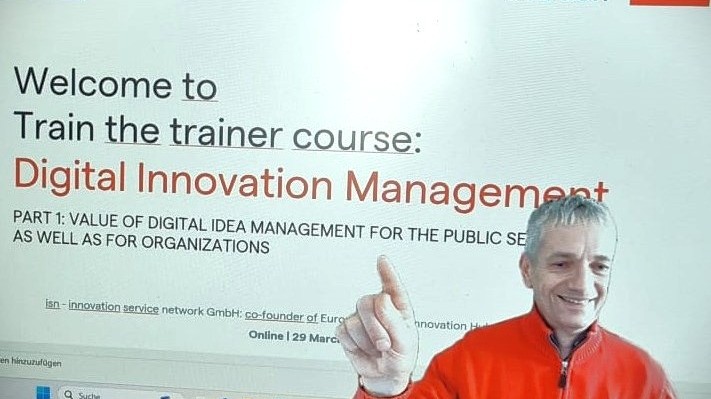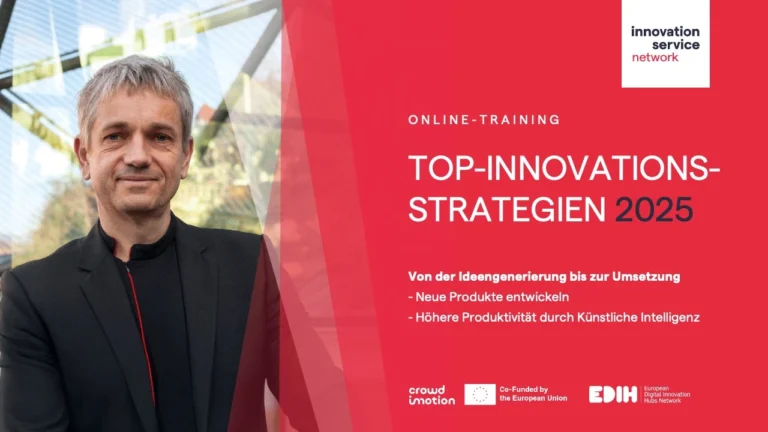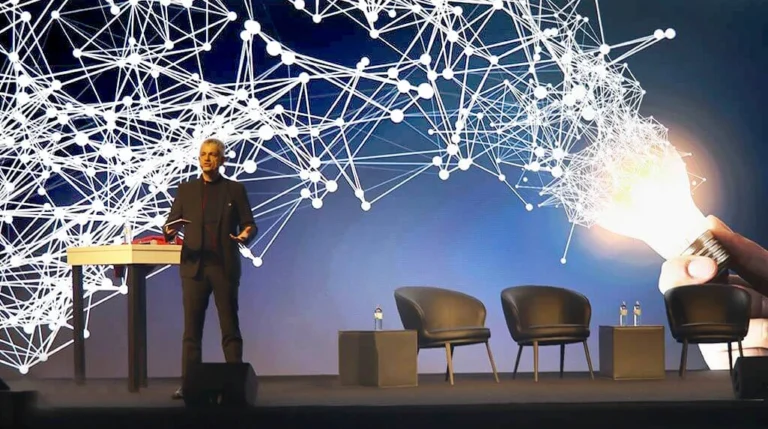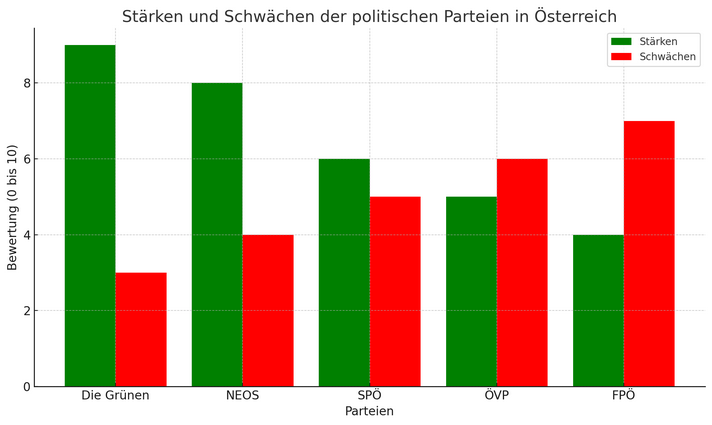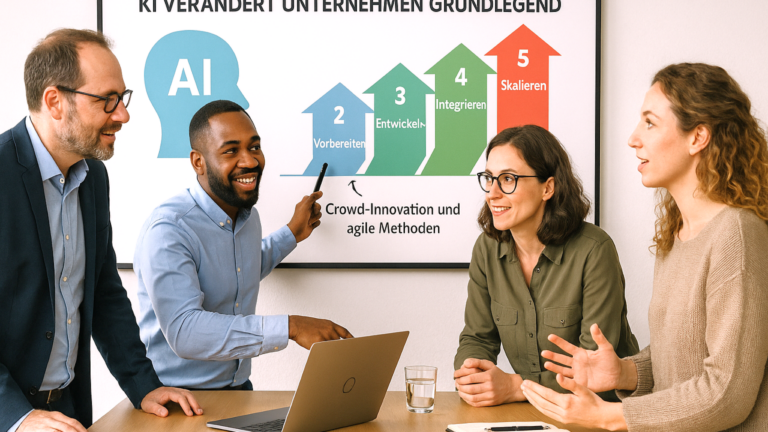

“We have to become better again at what we have become too expensive at our location,” was the message from the President of the Federation of Austrian Industries Upper Austria and KTM CEO Stefan Pierer at the Industry Reception 2024. The mood in the manufacturing industry remains economically subdued and the prospects for 2025 do not yet look like growth either. In the competition between locations, Germany, Austria and other European regions are in a critical situation.
China produces, the USA innovates and Europe regulates ... This saying has been doing the rounds for a while now. Ten years ago, China would have been called “copied”, but now China is also innovating intensively and the government is providing investment. China is strategically investing billions in research and development. Whether the mindset is really good enough for a “second Silicon Valley” remains to be seen. The global economic figures certainly point in this direction. At the same time, the European economic area is falling further behind.
Has the “Green Deal” put us in a critical situation? The goal of “climate neutrality by 2050” with many conditions and bans has caused resentment among many economic players, especially in industry. “Europe regulated” could be an opportunity if we have the resources and technologies for a green Europe under control. Unfortunately, the current economic situation reflects a different picture. The implementation of the Green Deal, e.g. in mobility with imported electric cars from China and the USA, does little for a location USP.
Knowledge-intensive value creation with high labor and energy costs are on the agenda. We need to become better again at producing what we have recently become too expensive. We need strategies for the next five years that mobilize our strengths and provide orientation for all sectors of the economy. Increasing knowledge productivity and technological competence must replace the publicized discussion about extending or reducing working hours.
By “knowledge productivity”, I mean the effective and efficient use of knowledge in the development of solutions and values. In Austria, we have an expensive but very good education system and excellent researchers in many specialist areas. Our skilled workers and university graduates are in demand internationally. Setting up technology-intensive companies has also become easier and has increased in frequency.
Large companies have lost their reluctance to cooperate with start-ups and SMEs. This means that good ideas no longer have to suffer an “inventor's fate” in Austria. Foreign investors have now also recognized this and are happy to pick up Austrian start-ups in the larger financing rounds, meaning that their commercialization no longer takes place in Austria. This lack of return flow of tax revenue will cause us further concerns in the future. Strictly speaking, we are investing with our researchers and entrepreneurs in other economies that can avoid the risk of the early phase and achieve commercial success.
Knowledge productivity is an essential part of labor productivity in a knowledge-intensive economy. Productivity is the ratio of output to input. Many conversations with companies in recent months have put the topic of knowledge management back on the agenda after 25 years. Coincidence? No! To this day, duplication can still be observed in many companies, for example. “Even today, companies are still reinventing the wheel two or three times in parallel, and there is often a lack of transparency.
When companies enter a crisis, resources have to be adjusted, which usually means that a loss of knowledge is unavoidable. Knowledge about knowledge management is not yet sufficiently available in many companies. In companies with several locations or subsidiaries, the new opportunities for knowledge networking through digital tools are not yet sufficiently utilized. This results in a variety of measures that can contribute to increasing knowledge productivity.
Measures in detail: Build up knowledge on knowledge management. Use digital networking tools, e.g. an innovation platform for more innovation and transparency. Making talent and knowledge visible so that it can be better utilized, e.g. through a skills matrix, promoting informal learning in the workplace, etc.
For years, interest groups and business delegations have been making pilgrimages to Silicon Valley. The aim is to bring home a few sparks of innovative spirit and a recipe to spread entrepreneurship in our country. The sparks usually burn out the following Monday in the routine of the workplace. In a highly regulated environment with a limited willingness to take entrepreneurial risk or invest capital, the spirit of Silicon Valley is not so easy to transfer 1:1.
In my view, it would make much more sense to make better use of the intensity of cooperation between universities and research centers and the strong Austrian industry for research exploitation and entrepreneurship. This would reduce the risk of exploitation and allow access to existing sales resources in larger companies. This works much faster and with less risk than in a start-up, which first has to build up an infrastructure for commercialization. Spin-offs from companies could be a much better fit for Austria's innovation culture. TÜV Austria has shown how this could work with TRUSTIFAI and a joint venture with the Software Competence Center Hagenberg.
In recent years, almost all universities have begun to encourage employees to apply for IP rights in order to generate additional funds from IP exploitation. Reality has shown that this has only been successful in a few cases, but at the same time has unsettled entrepreneurial cooperation partners. Previously, it was clear that in a research collaboration, the company exploits and the research institute publishes. Some companies have drawn the consequences and strengthened their internal R&D.
Another lever for greater knowledge productivity lies in the Austrian business promotion system. Hardly any other country has such a highly developed funding system as Austria. The level of complexity and regulation is now so high that there are separate companies that advise applicants or write the funding applications. The idea of the funding system is to compensate for market failures or disadvantages of actors through various instruments (grants, loans, advice, etc.).
Since funding pots can generally provide fewer resources than are needed, there is no causal path to successful funding. I remember an EU funding program where only one consortium out of 40 submitting consortia was funded. However, the 39 other consortia made almost the same effort. The economic balance sheet in this case is devastating. Many good ideas were shelved.
Diversity is confusing: In addition to EU funding programs, there are federal funding programs with different distribution systems, as well as state funding and additional municipal funding from local authorities and cities. All funding systems have one thing in common: they are based on mistrust. The applicant must prove that he or she is using the money in accordance with the rules and regulations laid down over several years.
It would make more sense to invest more in cooperative programs to promote knowledge networking. Austria is already very fragmented and regionally structured. This makes it difficult to achieve international visibility and knowledge is built up redundantly and not cooperatively. Why not allocate part of the funding to high-risk projects without a lot of bureaucracy and measure the output?
Conclusion: There are certainly more opportunities to increase the attractiveness and effectiveness of the business location. There is a high level of knowledge and creativity here. This is our great opportunity and, unlike other nations, we are still allowed to think freely.
What is your view on the subject and how do you rate your company's knowledge productivity?
I look forward to your feedback and wish you a good start to the week!
Reinhard Willfort, Innovation Doctor, www.willfort.at
Let’s innovate together!
I am happy to offer further support for innovation projects as an Innovationdoc, sparring partner and thought collaborator.
The “Laufend-kreativ” format is based on the ideas from this newsletter and provides an opportunity to reflect on your own positioning or tackle specific tasks with me personally in nature. Book your free innovation consultation now!


